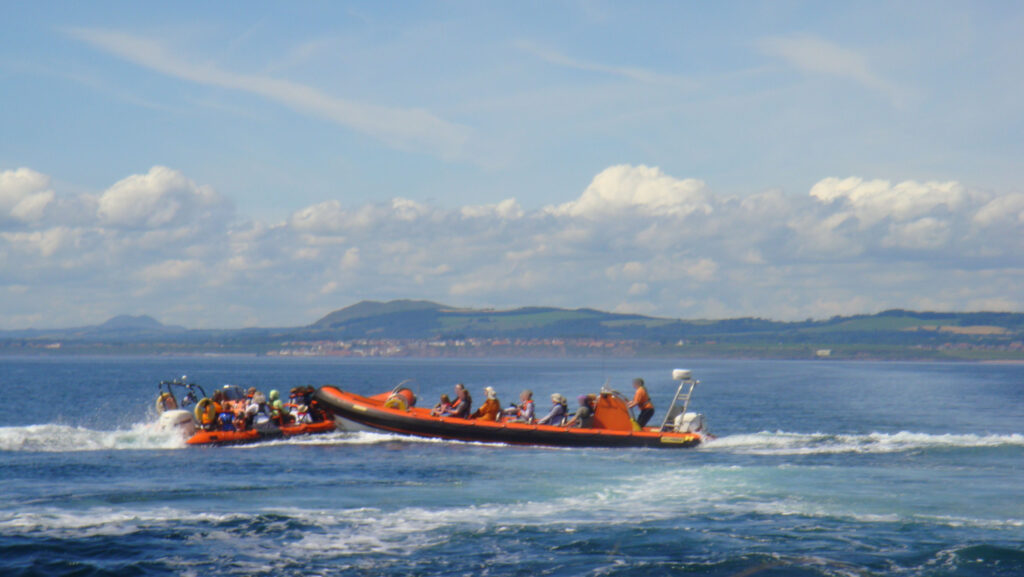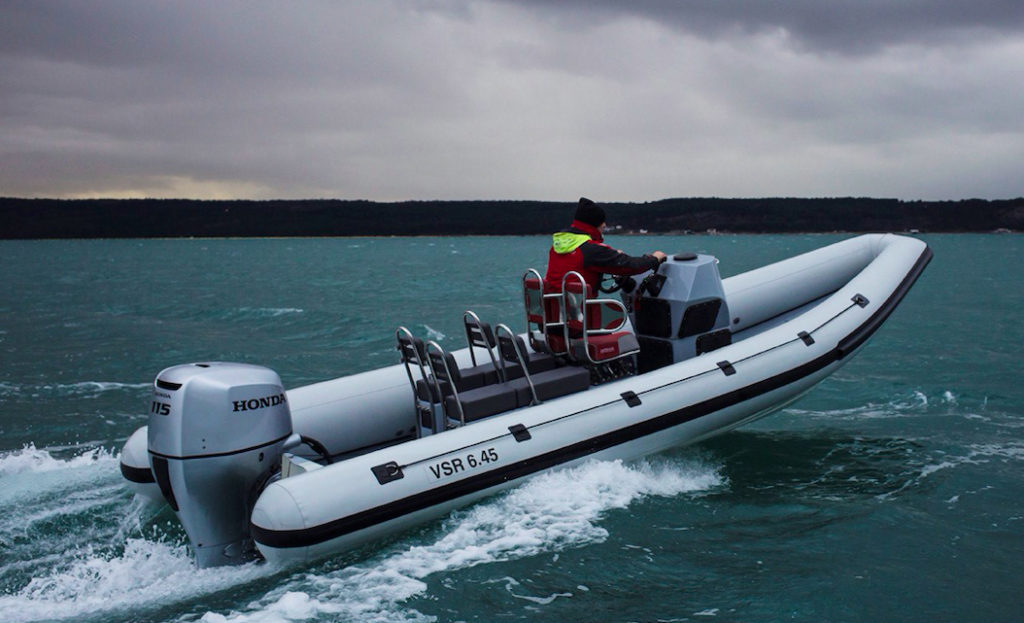Safety on commercial RIBs is a persistent issue, says MAIB, as passenger left paralysed
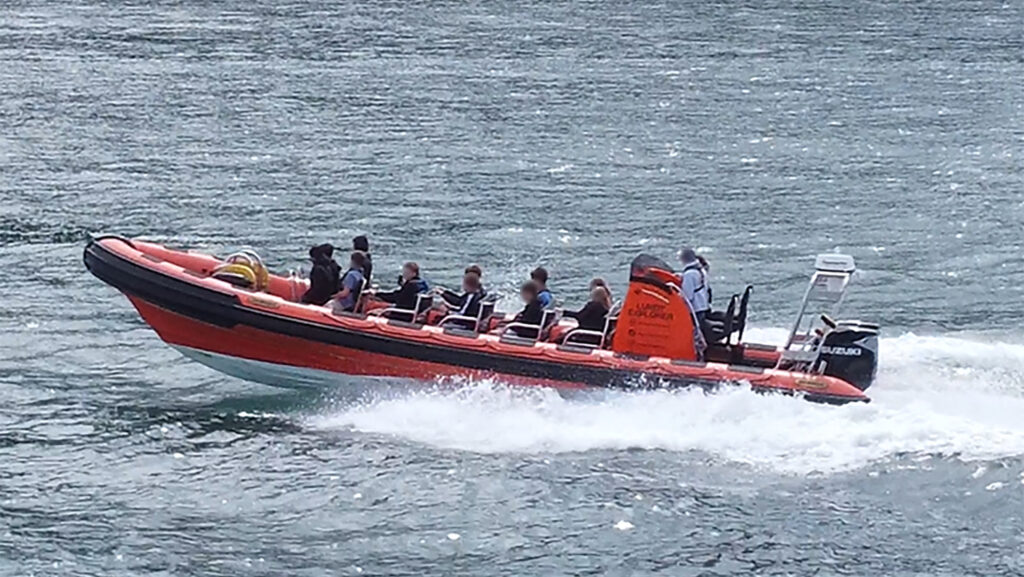 All images courtesy of MAIB
All images courtesy of MAIB
“Safety on commercial RIB operations is a persistent issue that the industry can do more to address,” says Andrew Moll, chief inspector of marine accidents for MAIB (Marine Accident Investigation Branch).
His words come as a passenger’s serious injury – permanent paralysis – and the accident in Ilfracombe Harbour is detailed in MAIB’s latest report. And because of the findings, Moll’s urging all operators to take action.
“Review seating arrangements, give thorough safety briefings before every voyage and conduct risk assessments. The guidance is plentiful, make use of it today.” Moll also recently stated that a “radical rethink” is needed for role of human watchkeepers.
The incident occurred two years ago (7 June 2023). As Lundy Explorer left Ilfracombe Harbour for a sea trip, the RIB encountered a high wave. That caused it to slam into an oncoming wave.
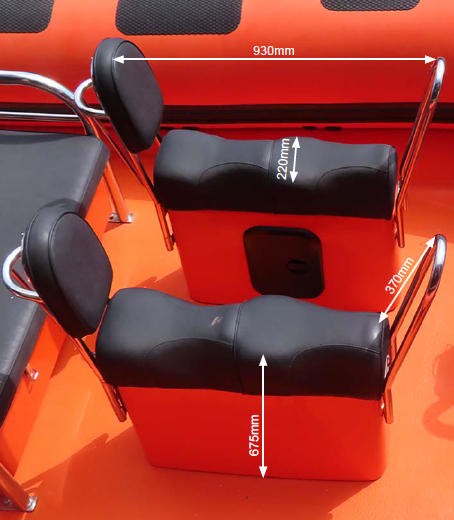
A passenger sitting in a jockey seat in the front of the RIB, where the highest shock loads were experienced, was dislodged from her seat and suffered a fracture of her spinal column that resulted in permanent paralysis.
“This dreadful accident highlights that even when operating at slow speeds in harbour areas, significant injuries can still occur on rigid inflatable boat rides when inappropriate seating arrangements are used,” says Moll.
“The passenger, who suffered life-changing injuries, was seated in the forward part of the vessel, an area well-known to experience the highest shock loads during wave impacts. Despite being in good health and wearing appropriate safety equipment, she was dislodged from her seat and sustained a spinal injury that has resulted in permanent paralysis.”
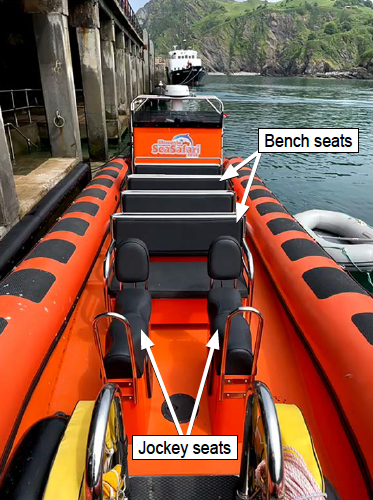
Current regulations do not reference safety standards for the design, position and use of seats on high-speed RIBs. According to MAIB, the position of the jockey seats at the front of the boat were unsuitable for single occupancy as they exposed passengers to high shock load as the boat slammed into the waves.
“The risk to passengers was significantly increased by the design and use of the front ‘jockey’ seats, combined with insufficient safety briefings and a lack of formalised operational procedures,” Moll continues.
“Sadly, these are not isolated issues. Our previous investigations have shown a pattern of similar injuries occurring, which suggests that safety on commercial RIB operations is a persistent issue that the industry can do more to address.”
Local weather conditions in Ilfracombe RIB accident
Local weather conditions had deteriorated quickly, resulting in choppy seas and increased wave heights. The report says that Lundy Explorer’s skipper had not expected those conditions, nor was the pre-departure safety briefing adequate in its instruction on the use of the seats. The passengers were unaware of the risks.
MAIB says the decision to run trips was based on the actual and forecast weather, and one of the two owners of the company would assess the conditions in the morning, before deciding whether to run trips that day. Assessments would also be conducted during the day should conditions change, and skippers could cancel trips if they were concerned. The company’s crew members reported that they were never under pressure to run a trip if they decided conditions were unsafe. All the employees consulted confirmed that trips had in the past been cancelled due to weather, but this had never been required while on passage before this accident.
Safety requirements needed for those seated in RIBs’ front third
Now MAIB’s recommending that the Maritime and Coastguard Agency extends the anthropometric assessment (MAIB Report 10/2023, the Seadogz report – recommendation 2023/120) to include vertical impacts resulting from operating high-speed commercial vessels in varied sea conditions and speeds. MAIB says there should be include a requirement included in the forthcoming Code of Practice for the Safety of Small Vessels in Commercial Use for Sport or Pleasure to assess and mitigate the risks of seating people in the front third of a RIB or high-speed boat.
Recommendations from MAIB’s report on RIB accident
Ilfracombe Sea Safari is recommended to implement a safety management system to include operating procedures detailing pre-departure considerations and what actions to take should the conditions change; a pre-departure safety brief; risk assessments that accurately reflect potential hazards; and use of jockey seats. This is all contained in the Passenger Safety On Small Commercial High Speed Craft & Experience Rides – a Voluntary Code of Practice. It’s also been advised to install sensors that provide real-time measurement of the forces experienced in the boat’s forward section. This means that the helm can protect passengers and crew against the effects of vibrations and shocks (MGN 436 (M+F) Amendment 4 – Whole Body Vibration: Guidance on Mitigating Against the Effects of Shocks and Impacts on Small Vessels).
MAIB also adds that since the publication of its safety bulletin about the incident – prior to the report being published – it’s been notified of two incidents on RIBs that resulted in spinal fractures with recovery. In both cases, the injured person was seated in the front third of the boat. MAIB visited one of the owners and found that the RIB’s skipper was highly experienced, and that the company had a comprehensive set of risk assessments and operating procedures.
In 2025, two further accidents resulting in spinal injury occurred on boat excursions conducted by Ilfracombe Sea Safari.
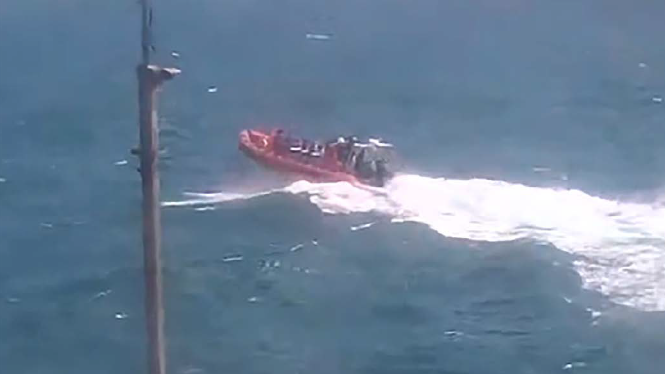
Ilfracombe RIB spinal injury accident in detail
Twelve adult passengers and one dog were on board. According to MAIB’s report, the first two passengers initially sat on a bench seat but were told by the deckhand to fill the RIB’s seats from forward.
The passengers went forward and sat together on the port jockey seat. The deckhand advised that they could each sit on a jockey seat so one passenger sat on the port side and the other on the starboard side.
Seating passengers on RIB
The remaining passengers sat on the bench seats. Once all were on board, the deckhand gave a safety briefing and instructed the passengers on how to wear the personal flotation devices provided and what actions to take in an emergency. The passengers were also advised to hold on as the conditions would be bumpy in the harbour entrance, but would improve once the RIB was clear of the harbour.
As Lundy Explorer rounded the pier to head into open water, the RIB pitched moderately. The skipper considered this to be normal and expected the RIB’s movement to ease once it was clear of the harbour. The passengers, some of whom had been on previous trips, were initially unconcerned and considered the movement to be typical in the conditions.
RIB’s pitching worsens
The heights of the waves increased, and the RIB’s pitching worsened as Lundy Explorer headed north-east. The skipper, who was surprised at the height of the waves, adjusted the RIB’s speed to minimise pitching and attempt to keep the passengers dry. Some of the passengers became anxious as Lundy Explorer pitched more intensely. Anticipating calmer waters beyond the harbour, the skipper shouted that the passengers should make it known if they wanted to go faster.
Lundy Explorer encountered two high waves while still below planing speed. The skipper had been easing the engine’s throttles as the bow reached a wave crest, then increasing the throttle as it descended. After a third high wave the bow landed on the water with force, bringing the RIB to a sudden stop. All the passengers were thrown forward and the passenger on the port side jockey seat fell off to the port side. The passenger on the starboard jockey seat struck their face heavily on the handhold in front of them. On the front bench seat, the passenger on the port side was badly jarred and winded and the passenger in the middle was shocked.
Passengers notify skipper of problem
Two passengers immediately raised their arms to notify the skipper that there was a problem. A passenger on the aft bench seat shouted to the skipper that someone had fallen off. The dislodged passenger was wedged between the jockey seat pedestal and the RIB’s sponson, in a twisted position with her right leg over the seat. The deckhand attended to the dislodged passenger, who said that she could not feel her legs. The deckhand was concerned that the casualty’s position was unsafe and moved her right leg from the seat. The deckhand then attended to the two injured passengers on the bench seat.

